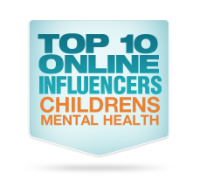 Consider the stories of the five people described in these passages…
Consider the stories of the five people described in these passages…
I’ve lost twenty pounds in two months because of your accusation. My bones are brittle as dry sticks because of my sin. I’m swamped by my bad behavior, collapsed under gunnysacks of guilt. The cuts in my flesh stink and grow maggots because I’ve lived so badly. And now I’m flat on my face feeling sorry for myself morning to night. All my insides are on fire, my body is a wreck. I’m on my last legs; I’ve had it—my life is a vomit of groans.
Psalms 38:3-8 (MSG)
He ran for dear life to Beersheba, far in the south of Judah. He left his young servant there and then went on into the desert another day’s journey. He came to a lone broom bush and collapsed in its shade, wanting in the worst way to be done with it all—to just die: “Enough of this, God! Take my life—I’m ready to join my ancestors in the grave!” Exhausted, he fell asleep under the lone broom bush.
1 Kings 19:3-5 (MSG)
Curse the day I was born! The day my mother bore me—a curse on it, I say! And curse the man who delivered the news to my father: you’ve got a new baby—a boy baby!” (How happy it made him.) Let that birth notice is blacked out, deleted from the records, and the man who brought it haunted to his death with the bad news he brought. He should have killed me before I was born, with that womb as my tomb, my mother pregnant for the rest of her life with a baby dead in her womb. Why, oh why, did I ever leave that womb? Life’s been nothing but trouble and tears, and what’s coming is more of the same.
Jeremiah 20:14-18 (MSG)
We do not want you to be uninformed, brothers and sisters, about the troubles we experienced in the province of Asia. We were under great pressure, far beyond our ability to endure, so that we despaired of life itself.
2 Corinthians 1:8 (NIV)
He was despised and rejected—a man of sorrows, acquainted with deepest grief. We turned our backs on him and looked the other way. He was despised, and we did not care.
Isaiah 53:3 (NLT)
King David, Elijah, Jeremiah, the Apostle Paul, and Jesus (as described in Isaiah’s prophesy). Hardly a collection of guys lacking in faith. Yet, many in the church persist in the view that depression is a consequence of a lack of faith.
 While it’s possible that a lack of faith can contribute to symptoms of depression (Elijah in fear for his life from Jezebel) or sin (David), or life stresses (Jeremiah, Paul) it’s difficult to conclude from the number of Biblical illustrations in which giants of the faith struggled with hopelessness and despair that a primary cause of depression is a lack of faith or trust in God. Aren’t we making presumptions about God’s purposes in our suffering? Isn’t it possible, perhaps likely that God might use our suffering to strengthen our faith and to draw us into closer relationship with Him? I’m struck by the number of ministry leaders I’ve met who have struggled personally with depression. Just the other day, our colleague Shannon Dingle shared a wonderful post in which she described how being broken is not bad when God breaks us.
While it’s possible that a lack of faith can contribute to symptoms of depression (Elijah in fear for his life from Jezebel) or sin (David), or life stresses (Jeremiah, Paul) it’s difficult to conclude from the number of Biblical illustrations in which giants of the faith struggled with hopelessness and despair that a primary cause of depression is a lack of faith or trust in God. Aren’t we making presumptions about God’s purposes in our suffering? Isn’t it possible, perhaps likely that God might use our suffering to strengthen our faith and to draw us into closer relationship with Him? I’m struck by the number of ministry leaders I’ve met who have struggled personally with depression. Just the other day, our colleague Shannon Dingle shared a wonderful post in which she described how being broken is not bad when God breaks us.
Churches that welcome kids with disabilities and their families will encounter many parents who struggle with depression…in my nearly thirty years in psychiatry I can attest that depression is a frequent complication of having a child with significant disability, especially among mothers. If we’re using family-based ministry models as a strategy to help all kids grow in faith, we need to consider how we’re going to care for parents with depression if they’re responsible for shepherding their kids.
As a psychiatrist, I can’t ever say for sure why any individual kid I’m treating is depressed, other than to say that some combination of biological predisposition, patterns of thinking and perception, environmental influences, situational stressors and sometimes, spiritual factors are involved. From where I sit, churches are most helpful when demonstrating the unconditional love of Christ to all kids and adults struggling with depression, offering biblical counsel if desired, recognizing that depression is a manifestation of our broken world and that God (at times) may use medication and evidence-based psychotherapies as instruments of healing in response to prayer, and acknowledging that like all of us, persons with depression are broken people in need of a Savior.
Updated July 15, 2015
***********************************************************************************************************
 Check out Key Ministry’s blog series Depression in Children and Teens…A Primer for Pastors, Church Staff and Christian Parents. Click here for links to all of the posts in the series and some of Dr. G’s favorite resources related to depression in kids, teens and families.
Check out Key Ministry’s blog series Depression in Children and Teens…A Primer for Pastors, Church Staff and Christian Parents. Click here for links to all of the posts in the series and some of Dr. G’s favorite resources related to depression in kids, teens and families.





Thank you, thank you, thank you! I have struggled with anxiety and depression for many years and felt guilty about it the whole time, which only increases the problem. I hear the therapists and a few friends say that it’s an illness, and I can strongly believe that for others, but I’ve always been taught/told that I shouldn’t be anxious or depressed. I was brought up by parents with strong faith,
and taught by all those around me that no personal problem is too big to solve with God’s help. This was an expectation, as my parents were church leaders. My brothers and sister were ideal children: I was the changeling who wasn’t quite like the rest of the family, and not in a good way. I have been blessed in my life. I have a wonderful husband, great children and in laws that are much much more than I could have ever dreamed of, and beautiful, precious grandchildren. Most of all, of course, I have access to the blood of Christ. The few people I have talked to about my emotional health will say something to the effect of, “You are so fortunate. What do you have to be anxious/depressed about?” I get frustrated that the illness can’t be explained and they think I’m just refusing to look on the bright side, count my blessings, thank God, increase my faith, and snap out of it. This is an area of failure in the church in my experience. Most Christians don’t want to talk about it, or about other problems with a similar stigma such as drug and alcohol abuse. It send that any problem that requires more than a prayer , a hug, and a covered dish is taboo. We are losing current Christians, and we are failing to save the lost. Someone must wake us up!
LikeLike
Your comment is so familiar… beliefs that push a “no personal problem is too big to solve with God’s help” is ambiguous in how that works in practice- and often requesting specific will show how shallow the response is. But it allows the individual to be blamed (seeing blaming God is out of the question).
Depression has so many contributing factors… biological, grief, stress, loss of hope (not lack of faith, which is different), denial (of of above fore mentioned ,but also denial of sin, abuse), .. many of which are minimised, ignored or dismissed by those in the church, often citing “unforgiveness” as the other way to blame the suffer.
LikeLike
It “seems ” that any problem…..auto correct hit me again.
LikeLike
Pingback: One in Five - Charleen Burghardt